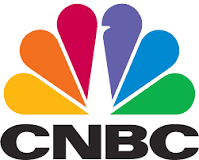Eli Lilly on Thursday said its daily obesity pill met the company's goals in the first of several late-stage trials, helping patients with Type 2 diabetes lower their blood sugar and body weight and showing safety comparable with popular injections on the market.
The trial results are among the pharmaceutical industry's most closely watched studies of the year, as they bring Eli Lilly's experimental pill — called orforglipron — another step closer to becoming a new, needle-free alternative in the booming weight loss and diabetes market. This more convenient, easier-to-manufacture pill could give Eli Lilly a major edge over Novo Nordisk and other rivals trying to enter the lucrative space.
The pill's weight loss data, along with rates of side effects and treatment discontinuations, were in line with what some Wall Street analysts were expecting. But orforglipron fell short of some analysts' estimates for a key diabetes metric.
Eli Lilly shares climbed 11% in premarket trading.
The highest dose of the pill helped patients lose 7.9% of their weight, or around 16 pounds, on average after 40 weeks. Eli Lilly also said patients saw no plateau in their weight loss by the time the study ended, suggesting they could lose more beyond that period.
Previous studies on the pill and existing injections have shown that patients with diabetes lose less weight than those without the condition, making it difficult to compare the data to that of drugs specifically for obesity.
About 8% of patients who took the highest dose of the pill discontinued treatment due to side effects. Those side effects were mainly gastrointestinal — such as nausea and vomiting — and mild to moderate in severity. An estimated 14% of those who took the highest dose experienced vomiting, while 16% and 26% had nausea and diarrhea, respectively.
In a note earlier this month, TD Cowen analysts said they expected a discontinuation rate of 9%. Other analysts said they anticipated the side effects of the pill would be slightly worse than injections, given that it is taken daily instead of weekly.
But the pill missed some analysts' estimates for a key diabetes metric. It helped lower hemoglobin A1c — a measure of blood sugar levels — by an average of 1.3% to 1.6% across different doses at 40 weeks, from a starting level of 8%. That compares to a 0.1% reduction in patients who took a placebo during the same period.
Some analysts were expecting a reduction of as much as 1.8% to 2.1%, which is in line with results in diabetes patients who took Novo Nordisk's diabetes injection Ozempic.
Still, Eli Lilly is "pleased to see that our latest incretin medicine meets our expectations for safety and tolerability, glucose control and weight loss, and we look forward to additional data readouts later this year," the company's CEO David Ricks said in a release. Incretin drugs mimic certain gut hormones to suppress a person's appetite and regulate blood sugar.
There are seven late-stage studies on the pill, including five diabetes trials and two obesity studies. The company expects to file for regulatory approval of the pill for obesity by the end of the year, and for diabetes in 2026.
If approved, orforglipron could help more patients access treatment and alleviate the supply shortfalls of the popular injections on the market. The pill "could be readily manufactured and launched at scale for use by people around the world," Ricks said in the release.
The pill could also help Eli Lilly solidify its dominance in the growing segment as a slate of other drugmakers race to bring similar products to the market.
Offering the first oral version of a so-called GLP-1 could help Eli Lilly capture an even greater share of the market for that popular class of weight loss and diabetes drugs. Eli Lilly is currently about three years ahead of other drugmakers developing pills, including AstraZeneca, Roche, Structure Therapeutics and Viking Therapeutics, analysts told CNBC.
Some analysts expect the market for GLP-1s to be worth more than $150 billion annually by the early 2030s. Oral GLP-1s could grow to be worth $50 billion of that total, according to some analyst estimates.
Eli Lilly's pill works in a similar way to Wegovy, Ozempic and Novo Nordisk's diabetes pill Rybelsus, targeting a gut hormone called GLP-1 to suppress a person's appetite and regulate blood sugar.
But unlike those three medications, Eli Lilly's pill is not a peptide medication. That means it is absorbed more easily by the body and does not require dietary restrictions like Rybelsus does.

 3 weeks ago
3 weeks ago

















